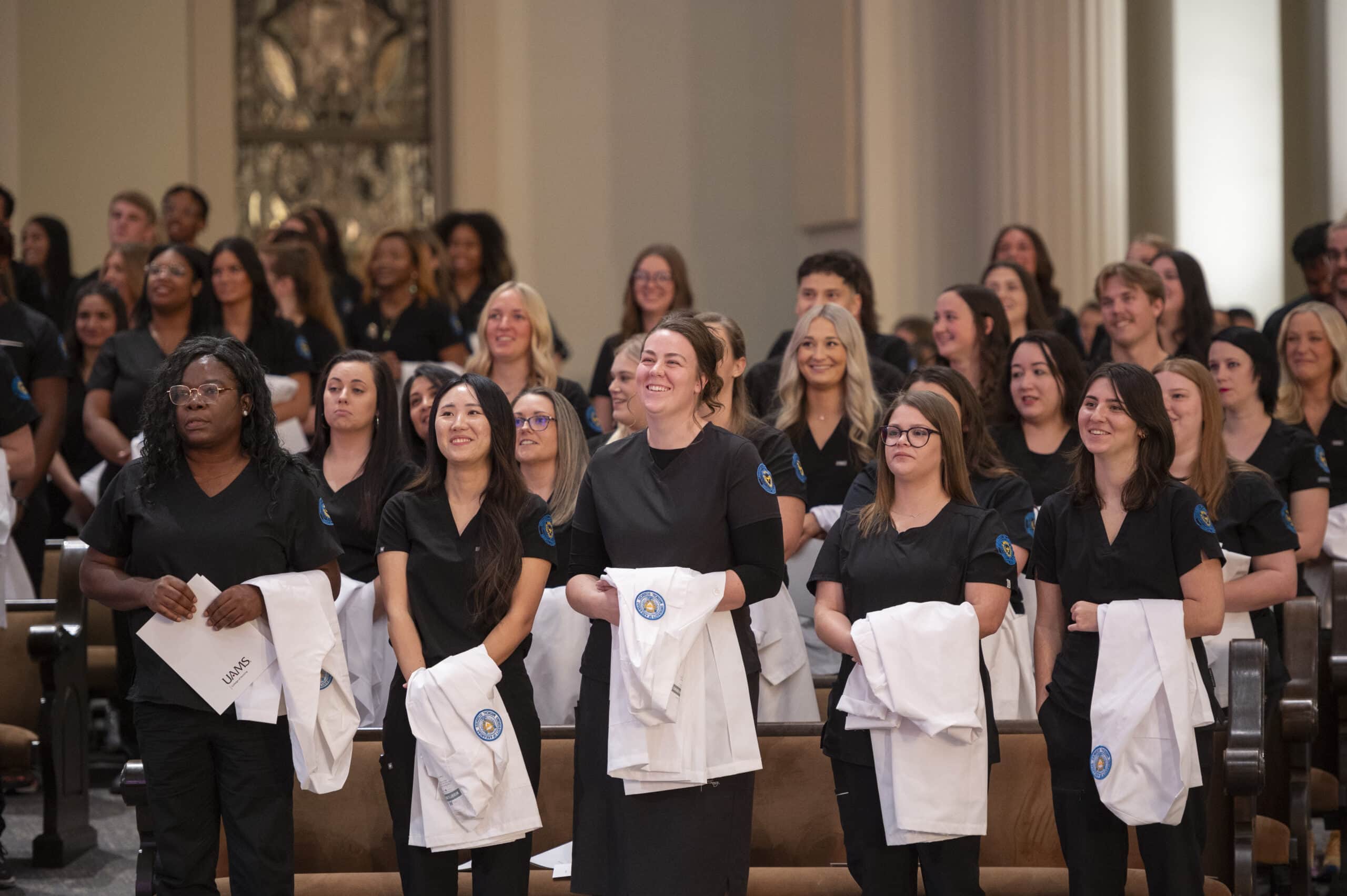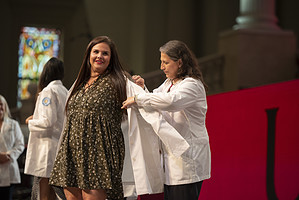View Larger Image

Students stand during the College of Nursing's white coat ceremony.
Image by Evan Lewis
UAMS College of Nursing Students Don White Coats
| Nearly 150 students from the University of Arkansas for Medical Sciences (UAMS) College of Nursing donned white coats during an Oct. 6 ceremony that recognized their transition to the clinical stage of their education.
The ceremony, held at the First Pentecostal Church of North Little Rock, honored students from the college’s undergraduate and graduate programs. Patricia Cowan, Ph.D., RN, dean of the College of Nursing, told the students that they’re more than ready to take the next step in their studies.
“As you look back to your first day of orientation, it is amazing to see how much you have grown and accomplished,” she said.
Cowan said white coat ceremonies originated about 30 years ago as a way to welcome students to health care practice and to acknowledge their central obligation of caring for patients.
“This ceremony emphasizes the importance of providing high-quality, collaborative and compassionate care to all people,” she said.
Fermin Renteria, DNP, APRN, assistant professor in the College of Nursing and director of the Bachelor of Science in Nursing program, praised the students for the dedication they’ve shown in their academic journey. He also acknowledged the impact of friends and family members who were in the audience to support the students.
“No one gets through nursing school on their own,” he said.
Students received their white coats after reciting the Nightingale Pledge, which serves as another sign of their transition from didactic coursework to clinical education. The pledge affirms their dedication to maintaining professional standards and promoting the health and happiness of their patients.
Albrey Love, DNP, APRN, clinical assistant professor and director of the Doctor of Nursing Practice program, concluded the ceremony by noting the symbolic importance of the white coat. She encouraged the students to embrace the challenges that lie ahead, to celebrate their victories, and to remain aware of their capacity to influence their patients, families and communities.
“I want you to envision yourself wearing our program’s values of safety, integrity, excellence and teamwork on your sleeves,” she said. “Carry the knowledge that you’ve acquired, that you’ve worked hard to obtain, in your pockets. Your white coat is a symbol not just of our profession but of the commitment that you’ve made to uphold the highest standards of care.”
